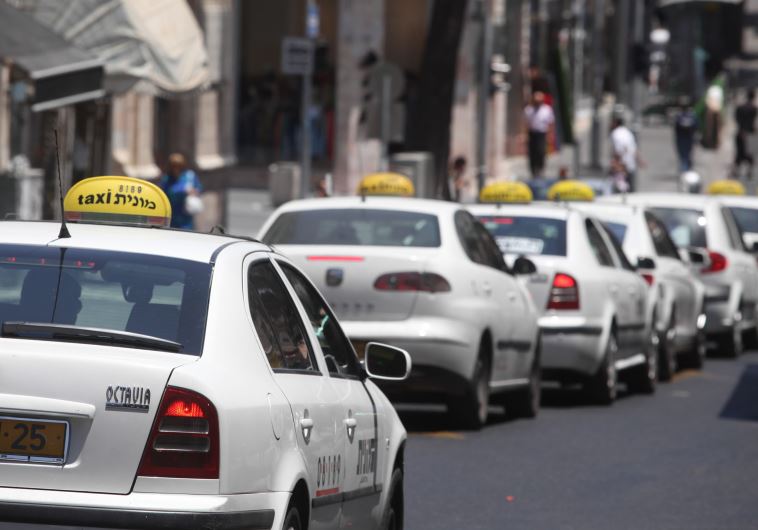Socio-Economic Cabinet approves shared taxi rides
The new mode of travel would bring financial savings to taxi users without hurting the profitability of the industry itself.
 Taxis on Jerusalem's King George Street(photo credit: MARC ISRAEL SELLEM/THE JERUSALEM POST)Updated:
Taxis on Jerusalem's King George Street(photo credit: MARC ISRAEL SELLEM/THE JERUSALEM POST)Updated: